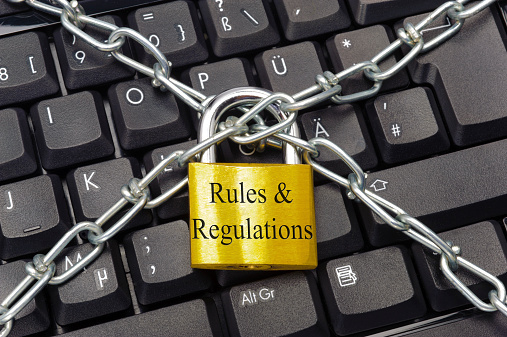Likely the least regulated private economic sector going into the Age of the Barack Obama Administration – at least at the federal level – was the Internet. Which is largely why the Web has become an ever-evolving, free speech-free market Xanadu.
This Administration views this is a tremendous failing – that they are rushing to rectify.
Just after this last election, the President’s Federal Communications Commission (FCC) – at the interloping behest of the President his own self – imposed two huge Internet power grabs.
There has been much examination of the ridiculous Network Neutrality grab – where the Feds will nowslam down onto the Net the ridiculous tax and regulatory superstructure that is 1930s landline telephone laws.
Let’s look at the other.
FCC Overturns State Laws Limiting Government Broadband
How’s that for federalism? Where in the Constitution is the federal government empowered to do that?
Why are there twenty states with laws limiting their local governments from getting into the broadband business?
Reason 1: Government stinks at doing…well, just about everything.
Government couldn’t make money selling sex. So it probably shouldn’t be in the business of trying to be a business. ObamaCare, anyone? Veterans Administration? Postal service? Trains?
The federal government is over $18 trillion in debt. It clearly stinks at doing…well, just about everything.
Twenty states watched local governments throughout the nation fail spectacularly over and over again at being Internet providers. Often residents of entire states end up on the hook to bailout the failed local government attempts. So these twenty decided to pass laws to limit the damage.
The only question is – what are the other thirty states thinking?
The Administration, of course, steamrolled the states showing eminently good sense.
Government getting into the Internet business is an egregiously bad idea in at least two other ways.
Reason 2: Government is the referee – and playing for the opposing team.
Far and away the biggest impediments to private Internet providers being Internet providers – are local governments.
Local governments and their public utilities charge (Internet Service Providers) ISPs far more (for building rights) than these things actually cost. For example, rights of way and pole attachments fees can double the cost of network construction….
These (government) incumbents – the real monopolists – also have the final say on whether an ISP can build a network. They determine what hoops an ISP must jump through to get approval.
This reduces the number of potential competitors who can profitably deploy service.… The lack of competition makes it easier for local governments and utilities to charge more for rights of way and pole attachments.
It‘s a vicious circle…(A) system of forced kickbacks….(also) includ(ing) ISPs…building out service where it isn‘t demanded, donating equipment, and delivering free broadband to government buildings.
Think about these local governments – which hold the intrinsic fate of every private Internet provider in their greedy, giant hands – also competing with them as Internet providers.
Think the government shakedowns are bad now? Think its hard to get the government to grant you permission to do business now? Wait until the government is trying to sell what you’re trying to sell.
And government can ultimately do this:
The Postal Service (USPS) has a legal government monopoly on delivering first-class mail…. (Prospective competitors) are required by law to charge a high minimum price and cannot undercut USPS rates.
Reason 3: Government is taxing private providers – and using that money to fund competitors to these private providers.
Imagine if Office Depot could tax Office Max – and use that money to fund Office Depot.
Nearly every local government taxes Internet providers (I’d bet it’s every – I’m playing a safety). Which means Internet providers that pays taxes to local governments that are in the Internet provider business – are funding competitors to their businesses.
All of this is a lot of things. It certainly ain’t fair – and it certainly ain’t additionally competitive.
For these reasons – and many, MANY more – governments should as always rigorously adhere to the Yellow Pages Rule:
If you can find it in the Yellow Pages, the government shouldn‘t be doing it.
[Originally published at RedState]






